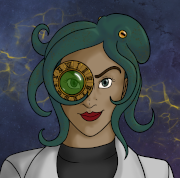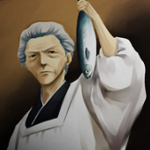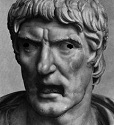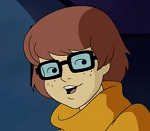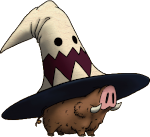|
General Battuta posted:There's nothing to bloat your wordcount like a protagonist who pauses after every loving line of dialogue to consider possible hidden meanings, clues about secret alliances, and ramifications for the grand global conspiracy Hey, but then you can break up your book into 2 parts and still have people consider it for the Nobel! Thanks, Murakami.
|
|
|
|

|
| # ? May 15, 2024 22:56 |
|
Daphnaie posted:So I had a question about using present tense, particularly in third person. People have been complaining about the "alarming increase" in present tense books since 1987. Here's an article going into that history and reasons why present tense might just be okay: http://lithub.com/in-defense-of-the-present-tense/ . A good reason identified there: half the Man Booker prize nominees in 2010 were written in present tense. Another good argument that it's not going to "keep you from getting published": https://www.goodreads.com/shelf/show/present-tense. Guess how many of these books are major best sellers? A lot. You'll notice a bunch of them are YA speculative fiction which a bunch of people like to dismiss as "trend-chasing hack" work no matter what. Also, Goodreads lists tend to lean far more towards YA than literary fiction/classics/even "adult" books. If you read a bunch of these, they are in first-person present tense which is far more common than 3rd person. There are some notable not-YA books on the list: One Flew Over the Cuckoo's Nest ; The Handmaid's Tale (Man Booker Prize nominee); All Quiet on the Western Front; The Night Circus; The Girl on the Train; Gone Girl; Rabbit, Run (National Book Award finalist); David Copperfield; A Visit From the Goon Squad (won a Pulitzer Prize, come on you assholes); Middlesex (another Pulitzer Prize winner). Some people say present tense is harder to do well. Some people say it's distracting. If you write a great book, people will read it regardless of tense. Write what works best for your story. Final note: Just because you start writing a novel in present tense doesn't mean you have to stick with it. You can go back and change it to past tense. I would actually recommend giving that a try with a few parts to see which you prefer. Obviously, the final book should almost certainly be in only one tense.
|
|
|
|
I think it probably just depends on the genre expectations. If you were writing epic fantasy for example then I can imagine it being jarring for a lot of readers. I don't read much urban fantasy thrillers so I'm not going to guess at how well it would work there. Personally, as a reader, I don't think the tense even registers for me most of the time. I am actually trying to remember the tense of the novel I'm reading right now and I'm not 100% sure.
|
|
|
|
The thing I've noticed about writing in present tense is less that there's anything wrong with it so much as the fact that the people who hate it really want you to know that they hate it. gently caress 'em.
|
|
|
|
Times I would probably not use first person: a. When I want to shift between a lot of POVs. b. When I want to reveal information not known to my protagonist. c. When I just find it's not working for me. Other than that go hogwild IMO. EDIT: WAIT WE WERE TALKING ABOUT TENSE Just 'c' in that case.
|
|
|
|
I mostly write in the past-tense because everything I read is in past-tense. I don't think most people even notice as long as the work is well-written. Purists will always hate anything 'new' or 'different,' so take their word with a grain of salt. Also, thanks for the advice on editing, guys. I'm planning on limiting myself to doming every other week, while dedicating my non-dome weeks to more reading and recreational writing. I often stress over silly things, so taking the dome far too seriously might be part of my problem. Oh, one more thing. Any tips on reading better? I mean, I know how to read (as much as I joke about being illiterate in tdome's irc), but I feel like there are advanced tactics on digesting other people's writing you can use to improve your own. However, googling the subject brings up a lot of articles that seem sketchy at best. ZeBourgeoisie fucked around with this message at 14:10 on Nov 8, 2016 |
|
|
|
Present tense is generally inoffensive and even preferable if you want to convey a sense of immediacy or uncertainty about the future. On the other hand if you write a long-form story in second person I will destroy you.
|
|
|
|
Oxxidation posted:Present tense is generally inoffensive and even preferable if you want to convey a sense of immediacy or uncertainty about the future. I hate reading second person in general. I know it's supposed to feel all personal and intimate, but it always gives me this feeling similar to when somebody puts words in your mouth. "You see xxx and feel yyy" No, I don't. Perhaps this character you keep addressing in the second person feels this way, but all I feel is annoyance.
|
|
|
|
Francine Prose's Reading Like A Writer is worth checking out. It's full of close reads of passages from different books, and there's different chapters about seeing what works at the word level, the sentence level, and the paragraph level. There's even a good chapter about gesture, or how authors give characters meaningful, telling things to do in the middle of dialogue. You don't have to read everything analytically. It's helpful to just collect a bunch of reference points. Like: This is a book that does humor well. Or: This is a book that doesn't do humor well, and I wish it could have done xyz. Reading Amelia Grey's Gutshot helped me a lot with my surrealism week story -- I started thinking about why one of the stories ("House Heart") stuck with me so much, and I used those elements when writing my story. And of course read widely: short stories, novels, poetry, biographies, speculative fiction, literary fiction, old stuff, new stuff, terrible pulp, and stuff you know is going to go above your head. Read books by women, queer folks, and non-white authors. Not for the karma points, but because it's too easy for 90% of the books we read to be told from the perspective of white dudes, and that limits our perspective when we sit down to write.
|
|
|
|
Hmm, seems like you can't go wrong reading a writing guide by an author with the last name 'prose,' I'll definitely have to check it out.
|
|
|
|
I've written short stories in present tense and really enjoyed it, but I don't think I could write a whole novel that way. I've read whole novels that way (YA spec fic does this a ton, as other people have mentioned), and while I don't particularly enjoy it, I've never once read a book and thought it was ruined by the present tense. Chances are, if I think the book was bad, I can name about a dozen reasons before tense hits the list.
|
|
|
|
neongrey posted:The thing I've noticed about writing in present tense is less that there's anything wrong with it so much as the fact that the people who hate it really want you to know that they hate it. gently caress 'em. I hate writing in it but have liked the books I've read that use it.
|
|
|
|
General Battuta posted:There's nothing to bloat your wordcount like a protagonist who pauses after every loving line of dialogue to consider possible hidden meanings, clues about secret alliances, and ramifications for the grand global conspiracy It seems hard to find a sweet spot on this sort of thing when you've got a close pov with a single protagonist.
|
|
|
|
POOL IS CLOSED posted:It seems hard to find a sweet spot on this sort of thing when you've got a close pov with a single protagonist. Just because it's first person doesn't mean we need to know every thought that goes through the person's head. Their later actions can demonstrate that they've been thinking about things "behind the scenes". Zelazny's first five Amber books are first-person and full of conspiracies and backstabbings and so on; the protagonist is a canny rear end in a top hat who manages to figure a lot out (but not of course everything). And the books still move pretty drat quickly and don't feel the need to go into detail about anything that isn't immediately relevant to the plot.
|
|
|
|
Here's another reading, Kaishai's For LifeBeige posted:This is wonderful. Both the story and the reading. Please say there are more. thanks - happy to read stories on request
|
|
|
|
Hell YES I decided to write a tale with some crazy rear end Lovecraftian beasts that defy explanation and then summed it up with: It was a like a giant walking stick bug with the body of a jellyfish with like really long tendrils or tentacles that looked a lot like tree trunks and it kind of just lives up in trees. LET THE NIGHT TERRORS BEGIN. THE HORROR. I hate writing. It is REALLY hard to believe I have this avatar <==============================================
|
|
|
|
Surreptitious Muffin just posted a new fiction farm thread, so if you've got something short you've been sitting on then chuck it in there for a crit.
|
|
|
|
I wrote two novels this year (how the gently caress did I do that So I'm curious if others have the same issue, that is, having a pretty clear picture up to a certain point and then hitting a brick wall of "what happens next???" and what were your exercises for getting past it.
|
|
|
|
That's exactly how I write, minus the "always knowing the ending part" (well, and all the self-castigation). I haven't found any magical way past the stumbling blocks, other than sit and think and think and think and make sure you avoid the easy but unrealistic or uninteresting way out, even though it will solve all your problems, because that's one of the ways to end up with a poo poo story. I've found that getting past a block is easy; it's doing it with a bit of flair that's the difficult part. As you've finished two novels in a year, it really doesn't sound like you need much help in this regard.
|
|
|
|
I find writing fuels the best thinking. If I'm stuck, I try to write my way out. If the stuff I write is bad, knowing it's bad itches my brain so much, it spurs me to try to think up something better. After a bad writing day, I may throw out everything I've written, but it leads me to rewrite it with a better idea, rather than sitting in front of a blank screen going durrr. But my best writing sessions also come from taking half an hour or more to run through the scene in my head the night before. That and struggling with a story problem before giving up and going to bed (letting it go after the struggle is key, otherwise you're liable to lie awake all night). It gets my subconscious working on the problem, and I usually end up figuring poo poo out by the time I wake up.
|
|
|
|
I'm having the opposite problem. The stuff I'm doing right now does not feel organic at all. I'm forcing it, it feels like mush, and it bores me when I review. I've probably rewritten the same chapter three times already.  I think I know the problem---book 1 was easy because I had a specific city as the backdrop and didn't have to think too much about set pieces. This time, I'm sending Astin somewhere I'm unfamiliar with, and I don't know how to get him from point A to Point B and what it looks like en route. It's making it drat near impossible to focus on characters and action. Backgrounds have always been a weakness of mine. Why can't I just set everything in a bare expressionist stage? 
|
|
|
|
35,000 words and no antagonist. What the gently caress. SOOOO, I'm writing a 400,000 word novel and all this has been world building. That's it.
|
|
|
|
Hey, what's the easy way to search twitter for query letter requests by editors again? Getting close to the flagging my novel phase over here.
|
|
|
|
Shageletic posted:Hey, what's the easy way to search twitter for query letter requests by editors again? Getting close to the flagging my novel phase over here. Do you mean who's accepting queries or do you mean manuscript wish lists? Latter is #mswl.
|
|
|
|
POOL IS CLOSED posted:Do you mean who's accepting queries or do you mean manuscript wish lists? Latter is #mswl. That's the one, thanks.
|
|
|
|
magnificent7 posted:35,000 words and no antagonist. Apparently Brandon Sanderson wrote 300k of background material for the Stormlight Archive before writing book 1.  So maybe it's a slice of life prequel? v So maybe it's a slice of life prequel? v v v
|
|
|
|
I don't know which thread to put this in but I made a dinky little word count tracker for Scrivener on Windows. I built it for my own needs and it works alright on my machine, but I figure other people might find it useful as well. It'll track positive changes to word counts per chapter, add them up, and you can look at them in a graph, for which you can filter by project, date, and time period. It's quite easy to set up. The installation instructions are basically: quote:1. Download from GitHub; extract. But there are more detailed instructions in the link. Feedback would be very welcome
|
|
|
|
|
magnificent7 posted:35,000 words and no antagonist. Always easier to chuck out words than have to go back and write more. ... ... you are going to trim some of that, right? 
|
|
|
|
How far along in the story do you all usually get in your first chapters? For my last book I noticed there was a lot of meandering and things didn't get going until the second chapter, so I had to sit down and combine the two. I have read a lot of books where the inciting incident(s) doesn't happen in the first chapter, though. For the one I'm writing now, it goes like this: The main character is an astronomer returning to her summer home in the Hamptons after the recent death of her husband -> She gets harassed on the bus and warned about something -> After being dropped off at their now run down bungalow (it's been about 3 years since they last visited), she heads out to the beach to drown herself under the stars, BUT -> She hears a ghostly party coming from the house, and remembering the warning from earlier, tears her way back to find everything in shambles. Egged on by scientific curiosity she decides to keep living, at least until she can definitely prove one way or another that what happened was real. I guess writing something bad first and learning from your mistakes in the best way to improve? This seems like it's much faster than my last one.
|
|
|
|
magnificent7 posted:35,000 words and no antagonist. Good. Now put aside your setting bible and write the story.
|
|
|
|
Echo Cian posted:Good. Now put aside your setting bible and write the story. I'm trying. In my first book, I had to stop and actually build the mechanics for my ghosts; why they could do whatever they did, when/how it worked. That was some bullshit right there. So yeah, this is all that. I was trying to write a Lovecraft kind of tale where the gigantic horrific beasts weren't out to destroy the world, they were just there. And now I understand why that's a loving dumb idea, right up there with "Granite: The Musical."
|
|
|
|
magnificent7 posted:I'm trying. In my first book, I had to stop and actually build the mechanics for my ghosts; why they could do whatever they did, when/how it worked. That was some bullshit right there. It's a perfectly good idea, but an idea is not a premise. "Giant beasts," is an idea "A world with giant beasts," is a setting "A world with giant beasts in which [stuff happening]," is a premise The stuff happening is and will always be the most important part. The world building and all that other noise comes after. Nothing can take the place of the story.
|
|
|
|
magnificent7 posted:35,000 words and no antagonist. I dunno, the project I'm working on doesn't have an explicit antagonist. Or rather, the setting, and the demands it puts on the characters, is the antagonist. The protagonist-antagonist relationship, when it's done right, is often just people with irreconcilable goals bouncing off of each other. So if your Lovecraftian monsters aren't explicitly "bad", they should still have an effect that causes conflict between your various characters. That said, if you're writing 400K of fantasy, you're going to have plenty of fat to trim. Love the fat. Enjoy it before you have to sheer it away and leave it to rot in your many many note files.
|
|
|
|
Sitting Here posted:I dunno, the project I'm working on doesn't have an explicit antagonist. Or rather, the setting, and the demands it puts on the characters, is the antagonist. The protagonist-antagonist relationship, when it's done right, is often just people with irreconcilable goals bouncing off of each other. So if your Lovecraftian monsters aren't explicitly "bad", they should still have an effect that causes conflict between your various characters.
|
|
|
|
In relation to the narration tense/person discussion earlier on this page: I find that I really enjoy third-person narrators who have a strong personality. That's probably my ideal narrative style, as a reader and as a writer. Getting an MA in fiction writing sort of beat that out of me, though. My professors loving hated it, and not just in a "you're doing it wrong" way, but in a "god, the whole concept of this style offends me" way. I've sort of stuck to close third ever since, with the narration reflecting the personality of the character whose point of view we're in. First-person is weird for me. I actually find it to be kind of a turn-off in fiction, and yet there's a lot of fiction I love that's written in the first-person, and I think the best story I've ever written is first-person. There's this "why are you telling me this story? Who actually talks like this?" hump that I always have to get over in those cases. I admire writers who can write a really conversational, readable first-person, though. Junot Diaz comes to mind, like how Yunior is sort of a first-person narrator who pulls double duty as the third-person narrator of Oscar's story in Oscar Wao.
|
|
|
|
Harrow posted:In relation to the narration tense/person discussion earlier on this page: I decided to switch to 1st person when I realized all my favorite books were written that way. A weak 1st person is worse than a weak 3rd, which is why I stepped back from my instincts to write in 1st until I found a voice strong enough to tackle it (and also learned to write gooder). A good conversational tone is one way to pull it off, but there's other ways to make the POV sound natural. A good 1st person is focused on why the narrator is telling the story, and having a fictional audience in mind helps focus the story as well. I'm thinking specifically of things like prison confessionals like Lolita or Mother Night. Close third is great though, and tons of highly respected writers use it. I can't even imagine what kind of bug your profs had up their butt about it.
|
|
|
|
Stuporstar posted:I decided to switch to 1st person when I realized all my favorite books were written that way. A weak 1st person is worse than a weak 3rd, which is why I stepped back from my instincts to write in 1st until I found a voice strong enough to tackle it (and also learned to write gooder). A good conversational tone is one way to pull it off, but there's other ways to make the POV sound natural. A good 1st person is focused on why the narrator is telling the story, and having a fictional audience in mind helps focus the story as well. I'm thinking specifically of things like prison confessionals like Lolita or Mother Night. It wasn't close third they had a problem with, but the idea of an omniscient (or limited-omniscient) third-person narrator with a personality of their own, even though they're not a character in the story. I guess they thought that, if you wrote the third-person narrator like an actual person telling the reader the story (while not being a character in the story) the reader would just end up confused and wonder who the narrator is. I never really agreed with that. I don't read A Series of Unfortunate Events and go, "Yes, but who is telling me this story? Who is this person? How do they know this?", y'know? But that's the question they always asked, so eventually I just dropped it and never looked back. It's one of those things that I'm sure is difficult to do and I wasn't really doing it well at the time, but their criticism came down to the whole concept, rather than trying to make it work. Harrow fucked around with this message at 22:11 on Nov 29, 2016 |
|
|
|
I feel like that was a format that used to be a lot more common in fiction, but then modernism with its emphasis on point of view kind of stamped it out. Like, if you read C.S. Lewis, who is by no means a radical when it comes to writing style, much of his work is 3rd person omniscient but with a lot more asides and color than you'd expect from that kind of narrator today: "There was a boy called Eustace Clarence Scrubb, and he almost deserved it." Voyage of the Dawn Treader, 1952
|
|
|
|
Harrow posted:It wasn't close third they had a problem with, but the idea of an omniscient (or limited-omniscient) third-person narrator with a personality of their own, even though they're not a character in the story. I guess they thought that, if you wrote the third-person narrator like an actual person telling the reader the story (while not being a character in the story) the reader would just end up confused and wonder who the narrator is. I never really agreed with that. I don't read A Series of Unfortunate Events and go, "Yes, but who is telling me this story? Who is this person? How do they know this?", y'know? But that's the question they always asked, so eventually I just dropped it and never looked back. Ah, ok. You didn't mention omnicient. As BB mentioned above, it's considered outdated by modernists, which is why they probably hated it. But then something like Infinite Jest comes out, doing exactly what you described—limited omniscient 3rd person, so close the character's psychology determines the writing style—and the same people all cry, "Genius!" So hating it as a concept, rather than just because they're not seeing it done well, is a case of your bog-standard hypocritical academic rear end-hattery, which tends to plague all art programs.
|
|
|
|

|
| # ? May 15, 2024 22:56 |
|
Baby Babbeh posted:I feel like that was a format that used to be a lot more common in fiction, but then modernism with its emphasis on point of view kind of stamped it out. Like, if you read C.S. Lewis, who is by no means a radical when it comes to writing style, much of his work is 3rd person omniscient but with a lot more asides and color than you'd expect from that kind of narrator today: Right? I love that sort of writing, it always feels so lively and engaging to me. It's been a long time since I've tried, but I imagine it would be fun to write as well. Stuporstar posted:Ah, ok. You didn't mention omnicient. As BB mentioned above, it's considered outdated by modernists, which is why they probably hated it. But then something like Infinite Jest comes out, doing exactly what you described—limited omniscient 3rd person, so close the character's psychology determines the writing style—and the same people all cry, "Genius!" So hating it as a concept, rather than just because they're not seeing it done well, is a case of your bog-standard hypocritical academic rear end-hattery, which tends to plague all art programs. Yeah, and I wasn't about to argue. They'd all published stories and novels and had been doing this for decades, and I was just some 20-something jackass who sneaked his way into a pretty good fiction writing program after originally being accepted for literature, so hey. At least my last professor really enjoyed the more fantasy-leaning things I started to write and loved my thesis, which was an extended ghost story novella. I gotta start writing again, it's been way too long. Harrow fucked around with this message at 01:47 on Nov 30, 2016 |
|
|




